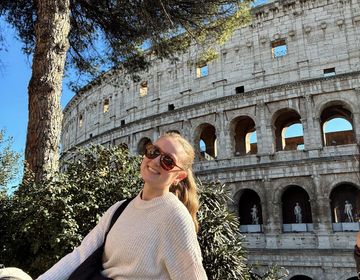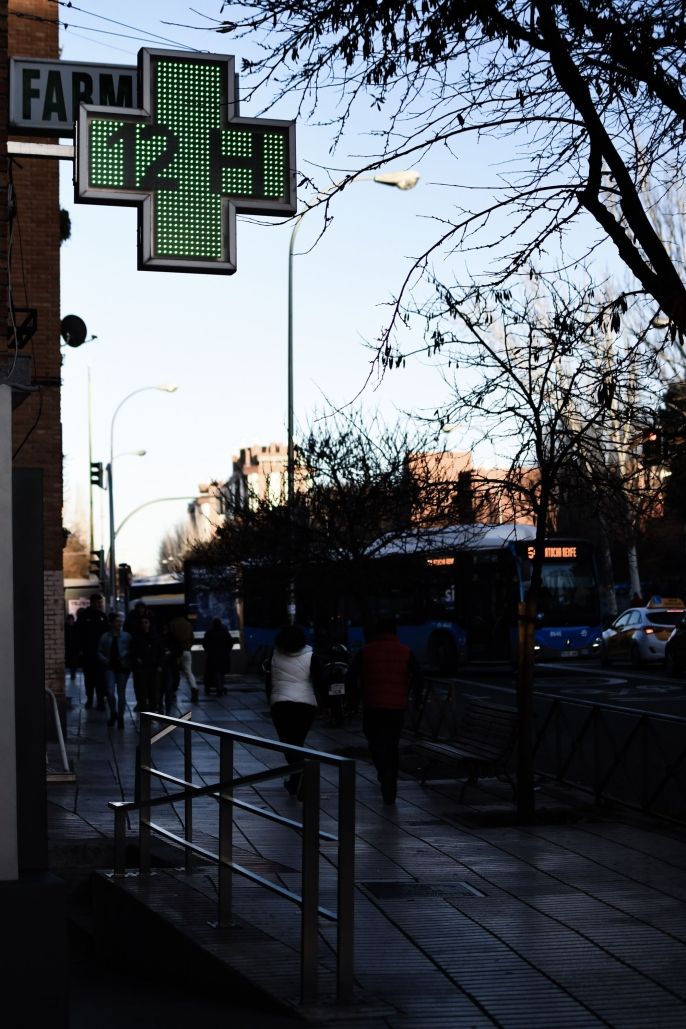Health and Wellness While Abroad
Navigating healthcare while abroad can be very daunting. Even when living in the U.S., working up the energy to make a doctor appointment can feel very challenging. Though I don’t often get sick, moving to a new country and working among children definity put my immune system through the wringer. Among me and my friends, we have had several experiences with the Spanish healthcare system and have learned a few things worth sharing.
One thing that I failed to do was to properly prepare for my health before leaving the states. I would definitely suggest getting your flu vaccine (or any other vaccines you need) before leaving the states. They’re not hard to get in Spain but you usually will have to pay or make an appointment, while many pharmacies in the U.S. offer free walk-in flu vaccinations. If you are on birth control, I would also suggest getting that sorted ahead of time so you have enough to get you through the 10 months in Spain. My insurance would not cover more than three months of birth control at a time, so I had to make an appointment in Spain to have my prescription renewed. Many of my friends were able to get long-term options for birth control like IUDs, an implant, or a shot before leaving for Spain, so that they would not have to worry about it while abroad.
My CIEE orientation leader said that his biggest advice for healthcare in Spain is “don’t get sick.” This might sound harsh but it’s definitely easier to put a little more time and effort into preventing illness than it is to constantly be headed to the doctor. Get your vaccinations, drink zumo de naranja, and make sleep a priority. You’ll be surprised at how easy it is to get sick between jet lag and working around children. So, exercise, drink fluids, and get some veggies into your diet– your body, your students, and your bank account will thank you.
If you do get sick, however, Spain thankfully has several options. Your first line of defence is the pharmacy. Pharmacists in Spain are well trained and can usually help you with less serious illnesses right there in the pharmacy. Medications are also much cheaper in Spain. I’ve never paid more than 4€ for medicine while here.
CIEE also provides us with iNext insurance which we can use at private hospitals. A representative from HM Hospitales was present at the CIEE orientation to talk about their services available to English speakers, and I definitely suggest taking advantage of them. When you’re sick, the last thing you want to worry about is a language barrier. I and many of my friends have made doctor appointments through HM Hospitales’ service for expats. They were able to make same-day or next-day appointments and provided us with great service. If using iNext instead of your primary insurance, you will still have to apply for reimbursement for the appointment through iNext. These are great options for non-emergency situations but the Emergency Room should obviously be your first choice for emergencies and life-threatening situations.
My orientation leader also mentioned that Centro Sandoval offers free STD screenings. There may be a wait, as this is a free service, but it’s nice to not have to pay for something as important as sexual health. It may also be worth it to look into the other free and low-cost services they provide.
Another point of anxiety when it comes to getting sick is missing work. The auxiliares handbook says you are allowed four paid sick days with a doctor’s note. These rules seem pretty strict and that’s why the advice, “don’t get sick,” is so justified. If you do fall ill and have to miss school, be sure to reach out to a doctor’s office or hospital right away to get an appointment. Even if you think you will be okay without medication, make the appointment so that you can get a doctor’s note and then apply for reimbursement through iNext. If you’re a little sick but think you can make it to school— go. If you seem too sick to be around kids, there’s a good chance your director will send you home early or even right away. Ultimately, the children’s safety and health are most important.
Hopefully these little pieces of advice from the experiences of myself and others will be helpful and alleviate some of the stress of navigating healthcare in a new country. It can be a daunting task, but with a little help from CIEE and your local resources, it is definitely manageable. I always feel very empowered and accomplished after picking up my medication at the Spanish farmacia knowing that I am making my health a priority, even while in a foreign country.
Related Posts

How to Plan a Weekend in Rome
After my weekend trip to Rome, I have compiled my tips for must-see sites, what to skip, where to shop, and what to eat!
Managing Mental Health While Teaching Abroad
Our expectations of Teaching Abroad can be far off from our reality, having an effect on our mental health, and that’s okay. Here are a few things I have found to be helpful in (gently) taking back control and creating a smoother transition into my new life as an English Teacher abroad in Spain.


